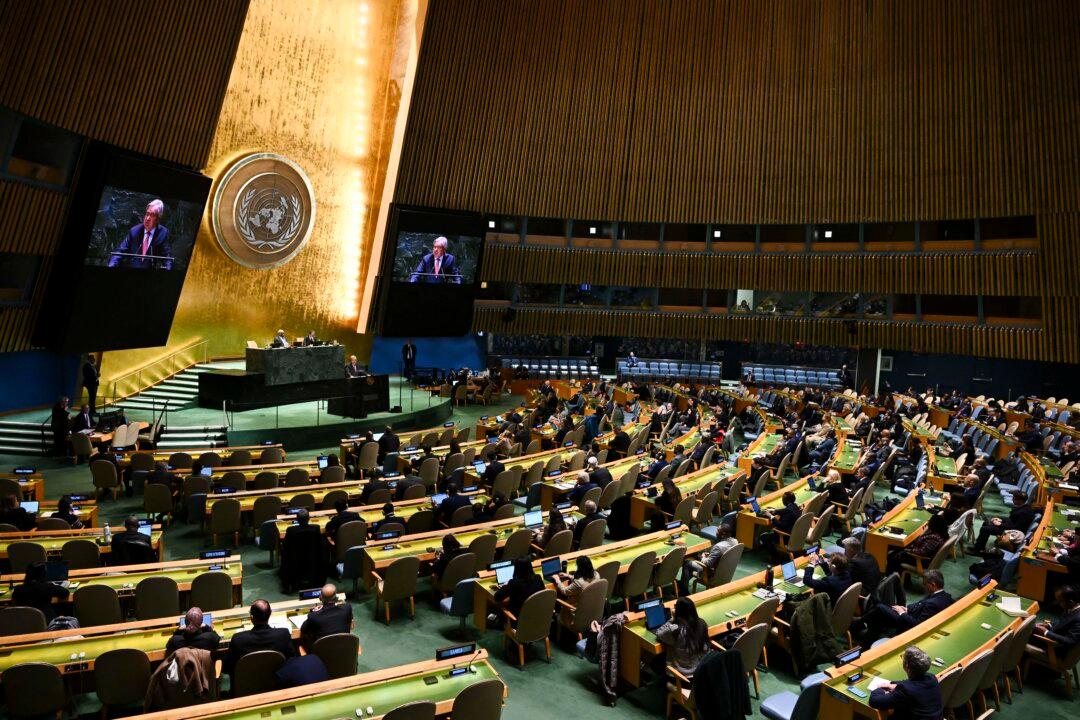The United States voted against a U.N. resolution on Feb. 24 that condemns Russia’s invasion of Ukraine, on the third anniversary of the war.
The three-page U.N. General Assembly resolution, as presented by Ukraine’s delegation at the international body, called for Russia to “completely and unconditionally withdraw all of its military forces from the territory of Ukraine within its internationally recognized borders.”





